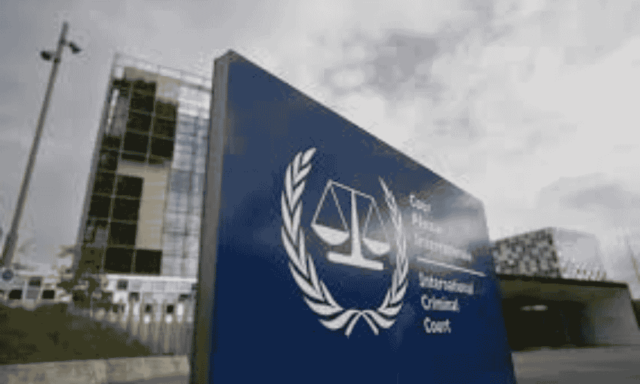Hague: A coalition of nearly 80 nations has declared its “unwavering support” for the ICC, emphasizing their commitment as countries pledge support for ICC after U.S. President Donald Trump imposed new sanctions against its officials.
In a joint statement, the nations reaffirmed their commitment to the ICC’s independence and integrity. They described the court as a vital part of international justice, holding perpetrators accountable for crimes such as war crimes, genocide, and crimes against humanity. The statement emphasized that justice for victims remains a key priority.
Who Signed and Who Did Not?
Among the signatories were major European nations, including France, Germany, and Britain. However, some key countries, such as Australia, Hungary, Italy, and the Czech Republic, were notably absent.
Hungary’s Prime Minister Viktor Orban openly supported Trump’s move. He suggested that Hungary should reassess its participation in the ICC, citing shifting global politics. His remarks, posted on X (formerly Twitter), referred to Trump’s influence as the “Trump-tornado.”
Neither Italy nor the Czech Republic immediately commented on their absence from the statement.
Trump’s Sanctions Against the ICC
Trump’s executive order allows the U.S. to impose economic and travel restrictions on ICC officials investigating American citizens or U.S. allies, including Israel. The sanctions freeze any U.S.-based assets of targeted individuals and ban them and their families from entering the country.
This move follows the ICC’s investigation into alleged war crimes committed by the U.S. in Afghanistan. Trump had previously sanctioned former ICC prosecutor Fatou Bensouda in 2020 over similar concerns.
European Leaders Condemn the Sanctions
Germany, the Netherlands, and other European Union (EU) leaders strongly criticized the sanctions. German Chancellor Olaf Scholz stated that punishing the ICC undermines its mission to bring war criminals to justice. He argued that sanctions were “the wrong tool” and could hinder efforts to prevent human rights abuses and war crimes.
Dutch Prime Minister Dick Schoof echoed this sentiment, pledging continued support for the court. He warned that Trump’s move could severely impact the ICC’s ability to operate effectively.
ICC Responds to U.S. Pressure
The ICC itself condemned the sanctions, promising to stand by its staff and continue seeking justice for victims. The court convened emergency meetings in The Hague to assess the impact of U.S. actions and devise strategies to mitigate potential damage.
Reports suggest that the ICC had already anticipated possible sanctions. Sources revealed that it had taken precautionary steps, including paying salaries three months in advance, to shield its personnel from financial restrictions.
Broader Implications
The U.S. is not the only major power at odds with the ICC. Russia also criticized the court after it issued an arrest warrant for President Vladimir Putin in 2023 over the illegal deportation of Ukrainian children. In response, Russia banned entry to the ICC’s chief prosecutor and two judges, adding them to its wanted list.
The ongoing friction between powerful nations and the ICC raises concerns about the future of international justice. With the U.S., Russia, China, and Israel all outside the court’s jurisdiction, the ICC faces growing pressure and challenges in fulfilling its mandate.
What’s Next?
The dispute over Trump’s sanctions is likely to further strain U.S. relations with ICC member states. While the ICC vows to continue its work, its ability to function may be significantly affected by financial constraints and political backlash.
As global leaders navigate these tensions, the future of the ICC remains uncertain. Supporters argue that its role in ensuring accountability and justice is more critical than ever. However, opposition from powerful nations could threaten its very existence.











